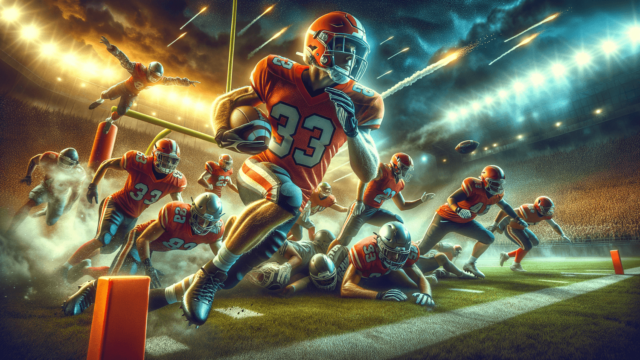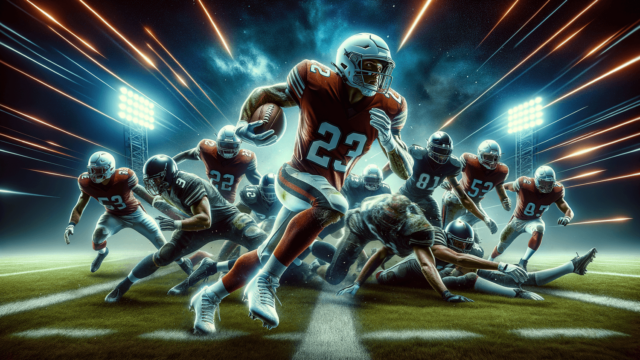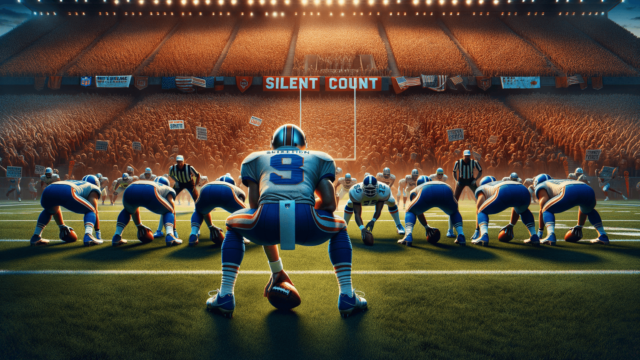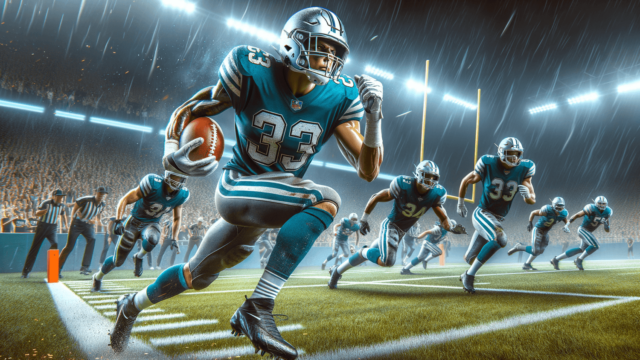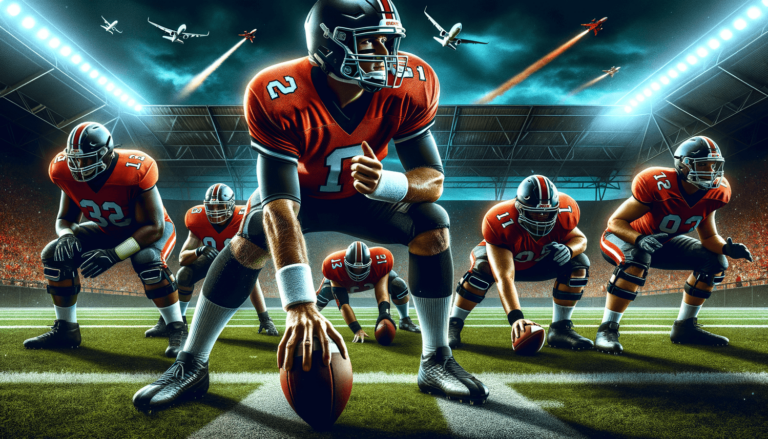
An audible in football is a last-minute change in the offensive play called by the quarterback at the line of scrimmage, based on the defensive alignment or perceived weaknesses. This allows the offense to adjust and exploit potential mismatches or gaps in the defense, increasing their chances of success.
Understanding the Concept of an Audible in Football
An audible in football is a strategic adjustment made by the quarterback during a game. The purpose of an audible is to adapt the offensive play based on the defensive formation or perceived weaknesses, increasing the chances of success on a particular play.
Key Components of an Audible
Recognizing Defensive Schemes
The quarterback must quickly analyze the defensive alignment and anticipate its strategy. This involves identifying the number of defensive linemen, linebackers, and defensive backs, as well as their positioning and coverage responsibilities.
Clear Communication
After deciding to call an audible, the quarterback must communicate the new play to the entire offense efficiently and effectively. Typically, this is done using specific words, numbers, or hand signals to denote the altered play call.
Offensive Adjustment
Each offensive player must understand and react to the audible called by the quarterback. This involves changing their pre-snap alignment, route-running assignments, or blocking responsibilities in accordance with the new play call.
Types of Audibles in Football
Run-to-Pass Audibles
If the quarterback sees a defensive formation that could be vulnerable to a passing play, they may call an audible to switch from the original run play to a pass play. This often involves exploiting mismatches in pass coverage or finding gaps in the defense’s pass rush.
Pass-to-Run Audibles
Conversely, if the defense appears more susceptible to a run play, the quarterback could change the initial pass play call to a run play. This may involve taking advantage of a defensive line focused on pass rushing or identifying favorable run lanes in the defense.
Directional Changes
In some instances, the quarterback will simply alter the direction of an existing play to counteract the defensive alignment. This could involve changing the side of a run play or adjusting the route combinations of a pass play based on the positioning of the defense.
Factors Affecting a Quarterback’s Decision to Call an Audible
Various elements come into play when a quarterback decides whether or not to call an audible. These factors include game situation, defensive strength, and the offense’s capabilities. Quarterbacks must weigh these factors carefully in making adjustments before the snap.
Game Situation
The current stage of the game can heavily influence a quarterback’s choice to call an audible. Time remaining, score, down and distance, and the field position all contribute to the decision-making process. For instance, a quarterback might opt for a more conservative or aggressive play based on the criticality of the situation.
Defensive Strength
The defense’s overall skill level and personnel can also guide a quarterback’s audible decisions. If a weak spot is detected on the opposing defense, the quarterback may choose to target that specific area by changing the play call.
Offensive Capabilities
A quarterback must also assess their team’s offensive strengths and weaknesses before making the decision to call an audible. Some offenses may struggle to execute particular types of plays, so a quarterback needs to consider these limitations when adjusting the strategy at the line of scrimmage.
Notable Quarterbacks Who Frequently Used Audibles
Several quarterbacks have earned a reputation as masterful users of audibles, using this strategy to maximize their team’s offensive potential. Some of the most notable quarterbacks known for their use of audibles include:
Peyton Manning
Often regarded as one of the smartest quarterbacks to have played the game, Peyton Manning was famous for calling audibles at the line of scrimmage. Manning’s deep understanding of defensive schemes and ability to read them in real-time enabled him to adjust plays and exploit weaknesses in the opposition’s defense.
Tom Brady
Another quarterback known for his prowess in calling audibles, Tom Brady has demonstrated exceptional skill in making adjustments before the snap. Brady has continued to use audibles to great effect throughout his storied career, contributing to his numerous Super Bowl victories.
Aaron Rodgers
Regarded as one of the most talented and seasoned quarterbacks in the league, Aaron Rodgers possesses a keen ability to read defenses and adjust plays as necessary. His use of audibles plays a significant role in his consistent success leading the Green Bay Packers offense.
Understanding and utilizing audibles effectively can provide teams with a tremendous advantage in the game of football. This strategic tool enables offenses to continuously adapt and optimize their strategies, ensuring they can continuously exploit defensive weaknesses and achieve success on the field.
FAQ Section: Delving Deeper into Audibles in Football
After learning about audibles, it’s only natural to have some questions. In this section, we provide answers to some frequently asked questions related to audibles in football.
Do all quarterbacks use audibles?
Not all quarterbacks use audibles to the same extent. The use of audibles varies by offensive strategy, the experience of the quarterback, and coaching preferences. Some quarterbacks may use audibles frequently, while others might use them sparingly or not at all.
How does a quarterback choose an audible code or signal?
Audible codes and signals are developed by the coaching staff and quarterback, with those signals kept secret to avoid being decoded by opposing teams. They typically consist of specific words, numbers, or hand gestures that are used consistently throughout a season or even an entire career.
Do defensive players ever call audibles?
Yes, defensive players — typically the middle linebacker or safety — can call audibles in the same vein as an offensive quarterback. They read the offensive alignment and adjust the original defensive play to counter the anticipated offensive strategy. This tactic, like offensive audibles, relies on effective communication and quick decision-making.
What happens if an offensive player doesn’t understand the audible?
If an offensive player fails to understand the audible, it may result in confusion among players, missed assignments, or poorly executed plays. Consequently, it is essential for quarterbacks to clearly communicate the audible call, and for players to study and practice audibles during team meetings and practices.
Can the defense sometimes anticipate and counter audibles?
Defensive players can occasionally predict and counter audibles by thoroughly studying the opposing quarterback’s patterns and tendencies. The defense might make adjustments based on the audible or even bluff an alignment to bait the quarterback into calling an unfavorable audible. However, effectively countering audibles requires extensive preparation and scouting.
Featured Posts
- No pillar pages found.
